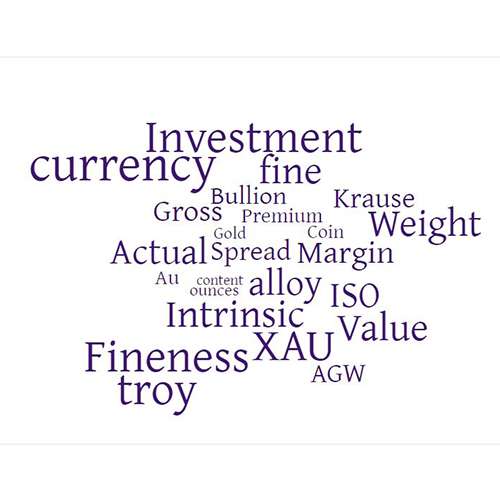Exploring the Potential of the Digital Pound in the UK
Synopsis
The Bank of England plans to issue a digital pound that will coexist with cash, offering benefits such as efficiency and accessibility. However, there are concerns about privacy and government overreach. The digital pound could transform the financial system, but its development must address these concerns.

Digital Pound Implications for the UK Economy
The Bank of England (BoE) has announced its intention to issue a digital pound in the next few years. The digital currency will run alongside cash and will not replace it. This decision is in line with the trend towards a cashless society, driven by technological advancements and digital payment systems. In this article, we will explore the BoE's plans regarding the digital pound, and we will examine the implications of this new currency for the UK economy and society.
Who Is the Bank of England?
The Bank of England is the central bank of the United Kingdom, established in 1694. Its primary objective is to maintain price stability and financial stability in the UK. The BoE issues banknotes and sets interest rates.
The current monetary system in the UK is a fiat currency system. This means that the currency is not backed by a commodity such as gold or silver. The Bank of England is the sole issuer of banknotes in the UK, and it also issues coins through the Royal Mint. Banknotes are legal tender, which means that they must be accepted as payment for goods and services.
The trend towards a cashless society has emerged in recent years, propelled by technological advances and the rise of digital payment systems. Many people now prefer to use cards or digital payment methods for their transactions rather than cash.
Benefits and Drawbacks of a Digital Currency
A digital currency offers several benefits, such as making transactions more efficient and secure. It would be less vulnerable to fraud or theft and easier to access, particularly for those without access to traditional banking systems.
However, there are also concerns about the potential drawbacks of a digital currency. One concern is that it could be vulnerable to cyber attacks. Another is the risk of the central bank manipulating or inflating the currency.
The Bank of England's Plans for the Digital Pound
The Bank of England has been exploring the possibility of a digital currency for several years. In 2021, the bank announced that it would conduct a consultation on the possibility of a digital pound. This consultation will look at the benefits and risks of a digital currency, as well as the potential impact on the economy.
The digital pound will not replace cash, but rather coexist alongside it. It will be a stablecoin, meaning that its value will be pegged to the value of the pound sterling. This will make it less volatile than other digital currencies such as Bitcoin.
The timeline for the launch of the digital pound is still unclear. The Bank of England has stated that it will take several years to develop the currency and ensure that it is secure and stable. The bank plans to regulate the digital pound using blockchain technology, which would ensure its security and prevent counterfeiting.
What Was the Public Reaction to the Digital Pound?
Public reaction to the possibility of a digital pound has been mixed. While some people welcome the idea as a means of making transactions more efficient and convenient, others express concern about the security and stability of the currency. There are also concerns that a digital currency could be used to monitor and control people's financial transactions.
Despite these concerns, a digital pound has several potential advantages, such as making transactions more accessible and secure. It could also help to reduce the risk of financial crime and improve the stability of the financial system.
What Are the Implications of the Digital Pound?
The implications of a digital pound for the UK economy and society are significant. A digital currency could make transactions more efficient and reduce the cost of transactions, thereby boosting economic growth. However, it could also lead to a decline in traditional banking services, which could have implications for the banking sector's profitability and job losses.
Additionally, a digital currency could be subject to manipulation or inflation by the central bank, which could have implications for businesses and financial institutions that rely on stable currency values. Privacy concerns also exist, as digital currency could be used to track people's financial transactions, potentially leading to a loss of trust in the financial system.
If the digital pound is successful in the UK, it has the potential to be adopted globally. Other countries are also exploring the possibility of digital currencies, and a successful digital pound could serve as a model for other countries to follow.
However, there are also concerns about the potential for a digital currency to be used for political influence. If a digital currency is adopted globally, this could result in the loss of financial sovereignty for countries that adopt it.
What Does the Future of a Cashless Society Look Like?
The Bank of England's plans for a digital pound are a significant development in the evolution of the financial system. The digital pound could have significant implications for the economy, financial institutions, and personal finance. While there are concerns about the privacy and security implications of a digital currency, the potential benefits, including speed, efficiency, security, and accessibility, are also significant.
It is crucial that the Bank of England continues to consult with stakeholders and the public to ensure that the digital pound is developed in a way that is secure, stable, and meets the needs of the UK economy and society as a whole. The digital pound has the potential to transform the financial system and make transactions more efficient and accessible, but it must be implemented appropriately and address concerns surrounding privacy and government overreach.
Related Articles
This guide and its content is copyright of Chard (1964) Ltd - © Chard (1964) Ltd 2024. All rights reserved. Any redistribution or reproduction of part or all of the contents in any form is prohibited.
We are not financial advisers and we would always recommend that you consult with one prior to making any investment decision.
You can read more about copyright or our advice disclaimer on these links.






